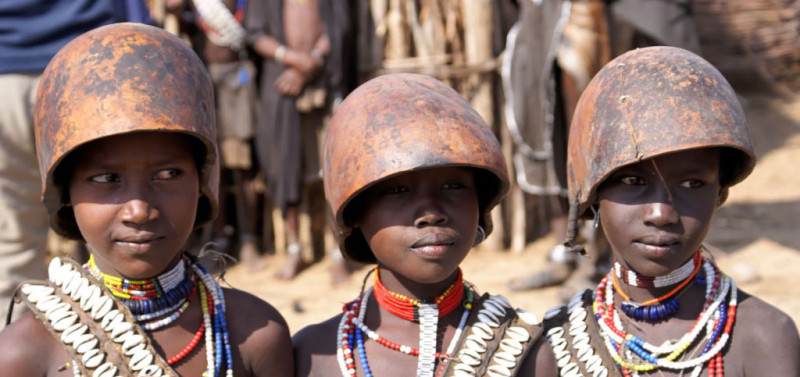The Arbore people
Presentation
The village of Arboré is the last outpost of southern Ethiopia facing the Kenyan border. The seasonal flooding of the Weito River creates a sort of linear oasis, a thin strip of fertile land torn from the desert on which the Arboré cultivate the sorghum and corn essential to their survival. These banks, periodically revitalized by the deposited silt, also provide good grazing for livestock, the second pillar of the local economy. Although they depend to a large extent on these agricultural resources, the Arboré consider themselves more as pastoralists than as cultivators. Cows, goats and sheep, which constitute the unit of measurement for all their commercial transactions, are the essential capital for any man wanting to marry.

The Arboré number approximately 5,500, divided into two branches: the Marle and the Gandaroba. The Arboré come from the grouping of several ethnic groups amalgamated over time to form a single people. Mixed marriages, with young girls from other tribes, are still the rule, so much so that any man can seek a wife among the Borena, the Dassanech, the Rendile, wherever he wants in fact as long as it is not among the hamer enemies. Oral tradition, in fact, attributes the origin of this people to mythical ancestors sent by the god Waq to build the first villages on both banks of the river. Most Arboré claim to descend from ancient Borena lineages.
The social organization of the Arboré is based on the age class system. The various generations, each of which is divided into four classes, succeed one another in power approximately every forty years. Political leaders have the duty to administer justice, to maintain good relations with neighboring peoples and to regulate property relations concerning land and animals. The fields are distributed seasonally between families, required to respect customary rules, so that individuals convicted of negligence in the exploitation of the plot allocated to them risk exclusion from distribution and can be sentenced to severe punishments, such as whipping.

